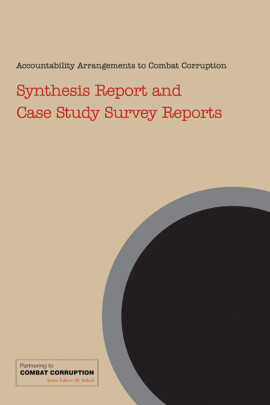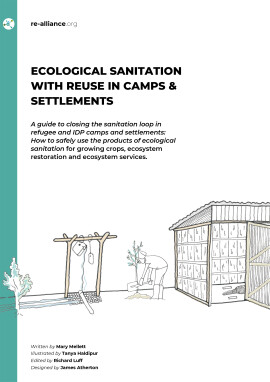
Accountability to Combat Corruption: Synthesis Report and Case Study Survey Reports
Desk-based descriptions of 27 anti-corruption initiatives have been conducted. These surveys describe particular accountability mechanisms/activities that aim to combat corruption in infrastructure services and improve the effectiveness and efficiency of such services, but also encourage pro-poor service delivery.
The sustainability of the livelihoods of the poor in low- and middle-income countries is compromised by corruption in the delivery of infrastructure services. Such services include water supply, sanitation, drainage, the provision of access roads and paving, transport, solid waste management, street lighting and community buildings. For this reason, The Water, Engineering Development Centre, (WEDC) at Loughborough University in the UK is conducting research into anti-corruption initiatives in this area of infrastructure services delivery.
This series of reports has been produced as part of a project entitled Accountability Arrangements to Combat Corruption, which was initially funded by the Department for International Development (DFID) of the British Government. The purpose of the work is to improve governance through the use of accountability arrangements to combat corruption in the delivery of infrastructure services. These findings, reviews, country case studies, case surveys and practical tools provide evidence of how anti-corruption initiatives in infrastructure delivery can contribute to the improvement of the lives of the urban poor.
This compilation presents the country case surveys. The surveys have been selected as they have instituted anti-corruption reform in infrastructure service provision. The mechanism of reform has then been analysed to provide evidence of how anti-corruption initiatives in infrastructure delivery can contribute to pro-poor outcomes.
The main objective of the research is the analysis of corruption in infrastructure delivery. This includes a review of accountability initiatives in infrastructure delivery and the nature of the impact of greater accountability.
Published: 2007
Pages: 142
Paperback: 9781843801214
The sustainability of the livelihoods of the poor in low- and middle-income countries is compromised by corruption in the delivery of infrastructure services. Such services include water supply, sanitation, drainage, the provision of access roads and paving, transport, solid waste management, street lighting and community buildings. For this reason, The Water, Engineering Development Centre, (WEDC) at Loughborough University in the UK is conducting research into anti-corruption initiatives in this area of infrastructure services delivery.
This series of reports has been produced as part of a project entitled Accountability Arrangements to Combat Corruption, which was initially funded by the Department for International Development (DFID) of the British Government. The purpose of the work is to improve governance through the use of accountability arrangements to combat corruption in the delivery of infrastructure services. These findings, reviews, country case studies, case surveys and practical tools provide evidence of how anti-corruption initiatives in infrastructure delivery can contribute to the improvement of the lives of the urban poor.
This compilation presents the country case surveys. The surveys have been selected as they have instituted anti-corruption reform in infrastructure service provision. The mechanism of reform has then been analysed to provide evidence of how anti-corruption initiatives in infrastructure delivery can contribute to pro-poor outcomes.
The main objective of the research is the analysis of corruption in infrastructure delivery. This includes a review of accountability initiatives in infrastructure delivery and the nature of the impact of greater accountability.
Sue Cavill
Sue Cavill has been working as a specialist advisor to the UK’s Department for International Development in recent years and has also worked with non-governmental organisations and international networks of community-based organisations. Widely published in peer-reviewed journals.





